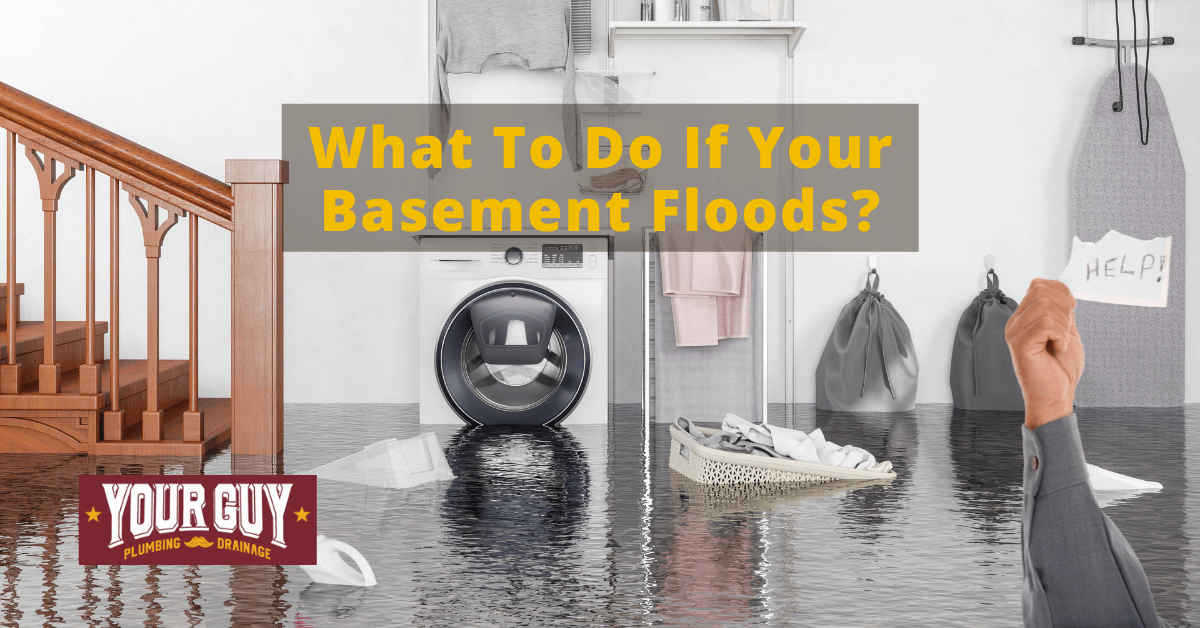A flooded basement can be a homeowner’s worst nightmare.
Not only is it a huge hassle to clean up, but it can also lead to expensive damage if not dealt with quickly. More than half of all homeowners will experience a basement flood at some point in their lives, so it’s important to know what to do if it happens to you.
Follow these simple steps to minimize the damage and get your home back to normal as soon as possible.
If you’re not interested in cleaning up or removing the water from your basement on your own, we would highly recommend skipping the steps below and just contacting a professional water clean up company to come out and perform the procedures for you.
6 Steps on What To Do After A Flooded Basement
Here are the essential steps to take after your basement floods:
Step #1: Get rid of the water.
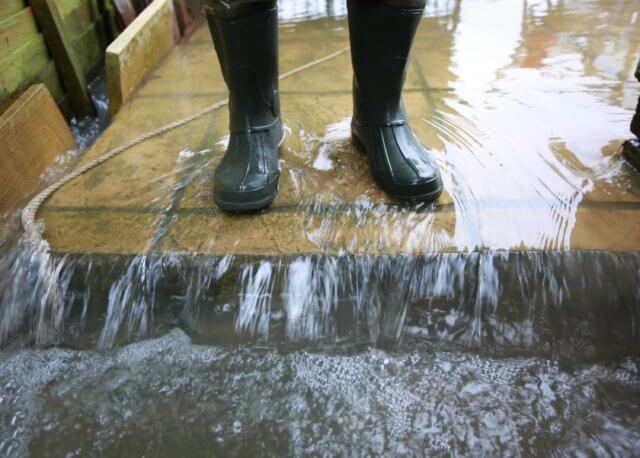
The first step is to get rid of all the water. This can be done with a sump pump, a shop vacuum, a pumper truck, or buckets and towels. It would be best to do this as quickly as possible before the water causes any more damage, molds, or bacteria to grow.
A sump pump would be the best protection against basement flooding as it automatically pumps water out of the basement. That’s why if you are from a low-lying area or have a history of basement flooding, it is a good idea to install one.
Step #2: Remove the wet items.
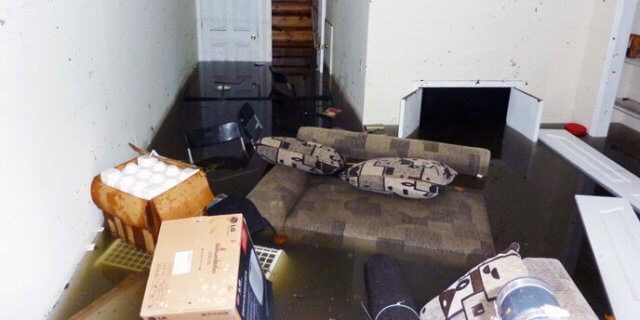
The next step is to remove all the wet items from the basement. This includes furniture, carpets, clothing, etc. If you can’t remove them immediately, make sure to place them in a dry, well-ventilated area.
Floodwater can be dangerous, so it is important to be careful when handling any of the items that have been in contact with it. Ensure to wash your hands thoroughly after coming into contact with any of these items.
Step #3: Dry the basement.
Once you have removed all the water and wet items, it is essential to dry the basement as quickly as possible. You can do this by using fans and dehumidifiers. Drying it out quickly will help prevent further damage and make the cleanup process much easier.
Step #4: Clean and scrub the floor.
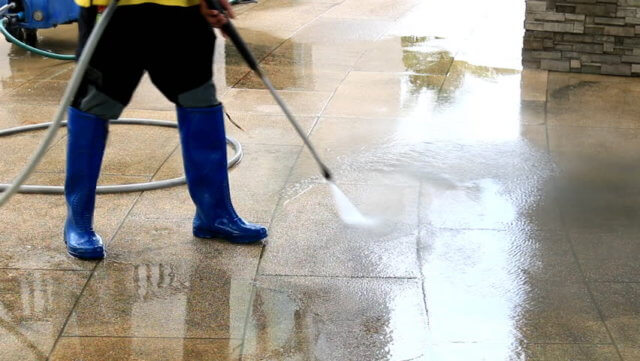
The next step is to clean and scrub the floor. This can be done with a broom, a mop, or a pressure washer. You can also use chemical cleaners to help remove any leftover stains or bacteria.
Make sure to protect the material of your flooring before you start cleaning. If the floor is concrete, you can use a waterproofing sealant to help protect it from future flooding.
Step #5: Inspect your drains, gutters, and downspouts.
The next step is to inspect your drains, gutters, and downspouts. Make sure all of them are clean and clear of debris so that water may flow freely away from your property.
If you find any clogs or obstructions, clear them immediately. This will help prevent future flooding.
Step #6: Repair any damage.
The final step is to repair any damage that the flooding has caused. This may include repairing or replacing furniture, carpets, walls, ceilings, etc. It is crucial to get this done as soon as possible so that the damage does not get worse.
Make sure to contact your insurance company if your policy covers the damage. Record all the damage so that you can provide a complete list to your insurance company.
How to Prevent Flooded Basement?
There are a few things you can do to help prevent a flooded basement:
Keep an eye on the weather
Pay attention to the weather forecasts and make sure you know what to expect. If you know there is a chance of heavy rain or flooding, take the necessary precautions to protect your home.
Keep your drains and gutters clear
Make sure to keep your drains and gutters are clear of debris so that water can flow freely. It is a good idea to have them cleaned regularly.
Install a sump pump.
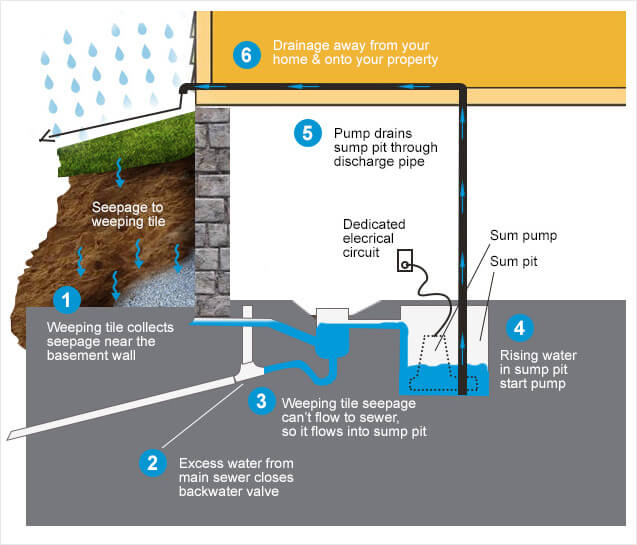
As we mentioned earlier, a sump pump can be a great way to protect your home from basement flooding. If you don’t have one installed already, now is the time to do it.
A sump pump is a battery-operated or AC-powered pump that sits in a basin at the lowest point of your basement and pumps water out to the storm drain. It will help you protect your home from future floods and save you from a lot of hassle and expenses.
If you live in the Lower Mainland and don’t want to install a sump pump yourself or are unsure about doing it, you can contact us for more information. With our expert team at Your Guy Plumbing, we can take care of the whole sump pump installation process so that your basement is safe from any water damage in the future.
Conclusion
A flooded basement can be a huge headache and lead to expensive damage if not dealt with quickly. Follow these simple steps to minimize the damage and get your home back to normal as soon as possible.
Be safe while cleaning up and not spread any bacteria or molds. If you are unsure about how to proceed or need help with any of the steps, don’t hesitate to contact a professional.
Frequently Asked Questions
Is a flooded basement dangerous?
Yes, a flooded basement can be dangerous. It is full of contaminants like bacteria, pesticides, and chemicals. It is essential to take precautions while cleaning up, such as wearing gloves and masks and washing your hands thoroughly afterward.
Will my insurance cover my flooded basement?
It depends on your insurance policy. Some policies will cover water damage caused by a flood, while others will not. It is important to read through your policy carefully and contact your insurance company if you have any questions.
Who to call during a flooded basement?
If you have a flooded basement, it is important to contact a professional immediately. They will be able to help you clean up the water and assess any damage done to your property.
Does a sump pump prevent basement flooding?
A sump pump can help protect your home from basement flooding, but it is not guaranteed. If the power goes out, your sump pump will not work. Be sure to have a backup plan in places such as a battery-powered pump or an emergency generator.

